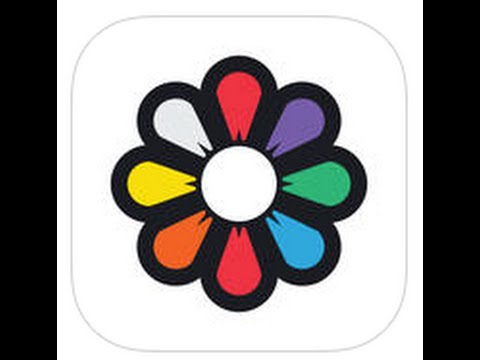
noun
- the quality of an object or substance with respect to light reflected by the object, usually determined visually by measurement of hue, saturation, and brightness of the reflected light; saturation or chroma; hue.
- the natural appearance of the skin, especially of the face; complexion: She has a lovely color.
- a ruddy complexion: The wind and sun had given color to the sailor’s face.
- a blush: His remarks brought the color to her face.
- vivid or distinctive quality, as of a literary work: Melville’s description of a whaling voyage is full of color.
- details in description, customs, speech, habits, etc., of a place or period: The novel takes place in New Orleans and contains much local color.
- something that is used for coloring; pigment; paint; tint; dye.
- background information, as anecdotes about players or competitors or analyses of plays, strategy, or performance, given by a sportscaster to heighten interest in a sportscast.
- colors,
- any distinctive color or combination or pattern of colors, especially of a badge, ribbon, uniform, or the like, worn or displayed as a symbol of or to identify allegiance to, membership in, or sponsorship by a school, group, or organization.
- nature, viewpoint, or attitude; character; personality: His behavior in a crisis revealed his true colors.
- a flag, ensign, etc., particularly the national flag.
- U.S. Navy.the ceremony of hoisting the national flag at 8 a.m. and of lowering it at sunset.
- skin complexion of a particular people or ethnic group, especially when other than white: a person of color; people of color; a man of color; alumni of color; children of color.
- outward appearance or aspect; guise or show: It was a lie, but it had the color of the truth.
- a pretext: She did it under the color of doing a good deed.
- Painting. the general use or effect of the pigments in a picture.
- Phonetics. timbre.
- Chiefly Law. an apparent or prima facie right or ground: to hold possession under color of title.
- Music. tone color.
- a trace or particle of valuable mineral, especially gold, as shown by washing auriferous gravel.
- Physics. any of the labels red, green, or blue that designate the three states in which quarks are expected to exist, or any of the corresponding labels for antiquark states.Compare quantum chromodynamics, quark model.
- Printing. the amount of ink used.
- Heraldry. a tincture other than a fur or metal, usually including gules, azure, vert, sable, and purpure.
adjective
- involving, utilizing, yielding, or possessing color: a color TV.
verb (used with object)
- to give or apply color to; tinge; paint; dye: She colored her hair dark red.
- to cause to appear different from the reality: In order to influence the jury, he colored his account of what had happened.
- to give a special character or distinguishing quality to: His personal feelings color his writing.
verb (used without object)
- to take on or change color: The ocean colored at dawn.
- to flush; blush: He colored when confronted with the incriminating evidence.
- call to the colors, to summon for service in the armed forces: Thousands are being called to the colors.
- change color,
- to blush as from embarrassment.
- to turn pale, as from fear: When he saw the size of his opponent, he changed color.
- with flying colors. flying colors.
noun, verb
- the US spelling of colour
early 13c., “skin color, complexion,” from Old French color “color, complexion, appearance” (Modern French couleur), from Latin color “color of the skin; color in general, hue; appearance,” from Old Latin colos, originally “a covering” (akin to celare “to hide, conceal”), from PIE root *kel- “to cover, conceal” (see cell).
For sense evolution, cf. Sanskrit varnah “covering, color,” related to vrnoti “covers,” and also see chroma. Meaning “visible color, color of something” is attested in English from c.1300. As “color as a property of things,” from late 14c. Old English words for “color” were hiw (“hue”), bleo.
late 14c.; see color (n.); earliest use is figurative. Related: Colored; coloring.
n.
- That aspect of the appearance of objects and light sources that may be specified in terms of hue, lightness, and saturation.
- That portion of the visible electromagnetic spectrum specified in terms of wavelength, luminosity, and purity.
- The general appearance of the skin.
- The skin pigmentation of a person not classified as white.
- The sensation produced by the effect of light waves striking the retina of the eye. The color of something depends mainly on which wavelengths of light it emits, reflects, or transmits.
- Color charge. See also hadron.
In addition to the idiom beginning with color
- color of someone’s money, see the
also see:
- false colors
- horse of a different color
- lend color to
- look through rose-colored glasses
- under false colors
- with flying colors
 Liberal Dictionary English Dictionary
Liberal Dictionary English Dictionary